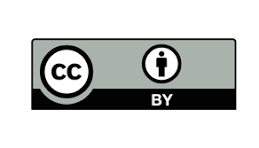A DIFUSÃO DE PRÁTICAS AMBIENTAIS SUSTENTÁVEIS PODE COLABORAR NA GESTÃO DE RESÍDUOS SÓLIDOS?
Palavras-chave:
Resíduos sólidos, Práticas Ambientais Sustentáveis, Educação Ambiental, Solid waste, Sustainable Environmental Practices, Environmental educationResumo
Um dos pontos básicos para solucionar a produção excessiva de resíduos sólidos passa pela mudança de hábito da sociedade, em relação à produção e à gestão de seus resíduos, tendo como alicerce a abordagem da Educação Ambiental. A fim de colaborar com essa mudança, na primeira fase desta pesquisa, visando conhecer como seus participantes gerenciavam seus resíduos, foi aplicado o Questionário I e disponibilizadas oficinas de práticas ambientais sustentáveis sobre este tema. Na segunda fase da pesquisa, o Questionário I foi aplicado novamente junto com o Questionário II, com o propósito de avaliar a eficiência das oficinas na mudança de hábitos e na difusão e na adoção das práticas oferecidas. Os resultados mostraram que, apesar de ter sido observado, em valor absoluto, um aumento de hábitos positivos para cada uma das 14 perguntas do Questionário I, somente 4 delas tiveram sua melhoria confirmada, estatísticamente, a um nível de 94% de confiabilidade. Entretanto, quando o mesmo teste estatístico foi aplicado de forma global foi confirmada a melhoria no comportamento dos participantes quanto à gestão de seus resíduos, a um nível de 99% de confiabilidade. De acordo com os dados do Questionário II, 91% dos participantes responderam que as oficinas foram relevantes para produzir mudanças em suas vidas e 91% afirmaram que transmitiram os conhecimentos das práticas. Enquanto, 48% não souberam dizer se as práticas haviam sido adotadas, 36% confirmaram que sim. Logo, a difusão de práticas ambientais sustentáveis, alicerçada à Educação Ambiental, pode ser uma ferramenta importante na gestão dos resíduos.
Abstract
One of the basic points to solve the excessive production of solid waste is the change in society's habit, in relation to the production and management of its waste, based on the Environmental Education approach. In order to collaborate with this change, in the first phase of this research, aiming at knowing how its participants managed their waste, Questionnaire I was applied and workshops on sustainable environmental practices on this topic were made available. In the second phase of the research, Questionnaire I was applied again together with Questionnaire II, in order to assess the efficiency of the workshops in changing habits and in the dissemination and adoption of the practices offered. The results showed that, although an increase in positive habits was observed for each of the 14 questions in Questionnaire I (in absolute values) only 4 of them had their improvement confirmed statistically, at a confidence level of 94%. However, when the same statistical test was applied globally, the improvement in the participants' behavior regarding their waste management was confirmed, at a confidence level of 99%. According to the data from Questionnaire II, 91% of the participants answered that the workshops were relevant to produce changes in their lives and 91% stated that they transmitted knowledge of the practices. While, 48% did not know if the practices had been adopted, 36% confirmed so. Therefore, the diffusion of sustainable environmental practices, based on Environmental Education, can be an important tool in waste management.
Downloads
Downloads
Publicado
Como Citar
Edição
Seção
Licença
Copyright (c) 2020 Episteme Transversalis

Este trabalho está licenciado sob uma licença Creative Commons Attribution-NonCommercial 4.0 International License.
Revista Episteme Transversalis © 2010 por Centro Universitário Geraldo Di Biase está licenciada sob Creative Commons Atribuição 4.0 Internacional. Para visualizar uma cópia desta licença, visite https://creativecommons.org/licenses/by/4.0/













